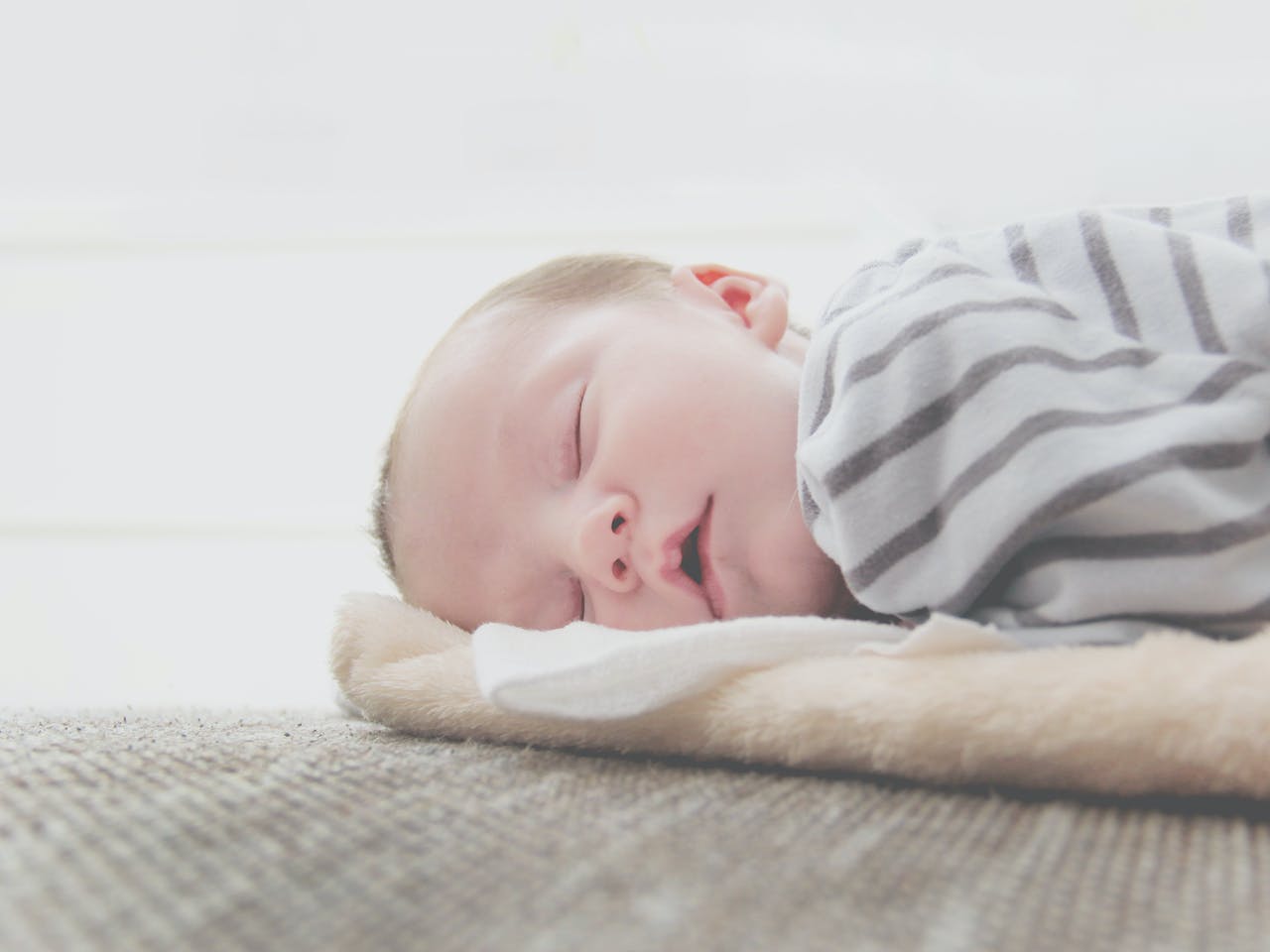
What are the sleep patterns in a baby?
Many couples who have just become parents wonder what a baby's sleep patterns are and what hours their child should sleep , as well as whether the baby has deep sleep and what is considered healthy or normal at bedtime. children's rest.
In this sense, the first thing to take into consideration is a baby's sleep patterns , since just as happens with adult rest, children's sleep goes through a series of certain phases.
Sleep starts out light, goes to deep and then to REM sleep. And on the contrary, from REM you go back to deep sleep, from there to light sleep, and upon waking up. In general, both adults and babies repeat this cycle between 4 and 5 times each night, with the duration of the cycle varying between 45 minutes and an hour for babies and about 20 or 30 minutes in the case of adults.
It is said that babies dream from the time they are in the womb, and that unlike adults, their dream periods can last several hours. In some cases, between light and deep sleep, a transition phase occurs, where nightmares usually occur.
But what is normal? How many hours should a baby sleep?
The sleep of a baby of 2 months or less represents a total of between 14 to 20 hours a day , despite having different interruptions during their rest. Newborn babies still do not distinguish between day and night and, therefore, wake up indifferently. During the 24 hours of the day, it is normal for a baby to eat every few hours (between 2 and 4) and therefore wake up to the sensation of appetite. However, from the sixth or seventh week of life, this changes.
Ina May Gaskin recommends, in her book “Birth Guide”, that parents and babies sleep together, at certain periods of the day, to facilitate feedings and rest, and to try to reconcile the rhythms of both (as far as possible, obviously).
At 3 months, a baby's sleep begins to reduce during the day ( between 14 and 16 hours ), but he or she is more likely to last 5 hours straight resting. However, it will not be until a month later when he begins to know the times for meals, bathing and other daily habits. A simple way to try to get babies to “understand” these schedules is to try to have a daily routine, which little by little will make them begin to associate waking up with food and sleeping with something after it.
The sleep of a 4-month-old baby begins to look more like that of a small child ( he sleeps between 9 and 12 hours ). He will take naps in the morning and afternoon (approximately two or three hours each), but he will spend more hours awake in the crib and will interact more with his environment.
It is at 6 months of life when sleep patterns begin, little by little, to develop according to the baby and its environment. During this period, babies usually sleep for about 11 hours and take two naps of two or three hours each. It is time to try to “educate” the time and way of going to sleep, in order to ensure that the baby is as autonomous as possible when falling asleep. Therefore, it is advisable to take the baby to his crib while he is still awake, to accustom him to his resting place, and to help the sleep process occur naturally by associating said place with peaceful schedules and routines: affectionate words, a soft blanket, a gentle rocking of the crib or even a little music.
The sleep of a 9-month-old baby is usually between 11-12 hours a day and two naps, between 1-2 hours each. As the baby grows, he becomes more autonomous and brings out his character. The hours of sleep or the difficulty in getting it depends on the personality of each child, so it may be that some babies wake up more than others, or are more unruly than others when it comes to getting into the crib. Routines, and making bedtime a time of calm, of love, and not of nervousness, help in any case.
One-year-old babies usually sleep between 10 and 11 hours and take two naps of between one and two hours each. At this age, crying when waking up may increase, as babies become more aware of “missing” their parents as they grow. Therefore, it is important to continue accustoming him to falling asleep on his own, without associating sleep with the constant presence of his parents.
Finally, remember that our baby is unique, different from all the others. If he is healthy and sleeping a little more or less than usual, we have nothing to worry about. In any case, the peace of mind and advice of a pediatrician will always be our best allies.


